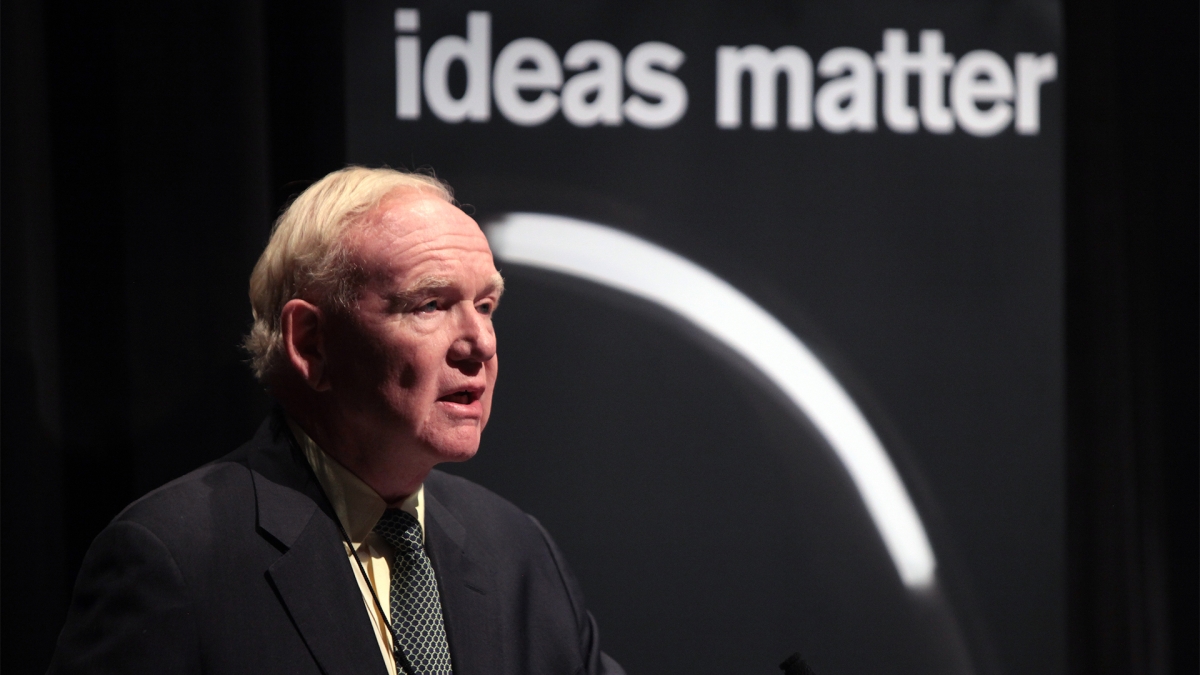New ASU center to engage community in politics, leadership

Arizona State University President Michael Crow has announced the appointment of Donald T. Critchlow as the director of the new Center for Political Thought and Leadership. The center, the evolution of the undergraduate Political Thought and Leadership certificate program Critchlow has co-directed, will provide research and training for the next generation of local and national leaders on the foundational principles of good government, civic involvement, free markets and political liberty.
“Professor Critchlow is the ideal person to lead this new center forward, and his distinguished background in political thought and research will bring great perspective and value to the center at a time of continued political deadlock and precipitous decline in civic literacy in the United States,” said Crow.
Critchlow, who came to ASU as the visiting Barry Goldwater Chair of American Institutions in 2010, is a professor in the School of Historical, Philosophical and Religious Studies. He has authored or edited 21 books, including his most recent work, “When Hollywood Was Right: How Movie Moguls, Film Stars, and Big Business Remade American Politics” (Cambridge University Press, 2013).
A graduate of the University of California Berkeley with a doctorate in history, Critchlow is president of the Institute for Political History, a national nonprofit educational foundation established in 2000 to promote the civic and academic education of political history and thought. At ASU, he teaches courses on American conservatism, political thought, political conspiracy and contemporary American history.
Working with Kent Wright, an associate professor of history at ASU, Critchlow co-founded the Political Thought and Leadership certificate program, providing undergraduate students with a foundation in the history of politics and political thought with an emphasis on developing civic leadership. The program acquaints students with major thinkers in democratic ideas and includes invited speakers, social events and internships geared to develop leaders well-versed in the principles of democracy.
Critchlow said, “To me, the most exciting aspect of the new center is that it will bring academic education and scholarly research to the larger Arizona community.”
The center has already received significant external support. It will house the Jack Miller Library on Constitutional Principles, a significant collection of classical books on political liberty and fundamental principles at the heart of American civic, cultural and constitutional life, and the Journal of Policy History, a peer-reviewed academic quarterly focused on the application of historical perspectives to public policy studies. The Miller Center is a non-profit, non-partisan and non-sectarian organization dedicated to the support of scholarship, teaching and study of the central ideas and themes of American history and the broader traditions of Western Civilization.
Additionally, a five-year grant providing up to $1.129 million dollars from the Charles Koch Foundation, an organization that supports research and educational programs focused on exploring the sources of well-being, will provide seed funding for the center. A post-doctoral program, faculty-student community workshops, a lecture program, student reading groups and library will offer many of the center’s activities.
“History offers an essential lens through which we can gain perspective on what has been most effective in helping people improve their lives,” said Richard Fink, president of the Charles Koch Foundation. “By exploring the tenets and traditions of societies, ASU’s new center promises to enhance our understanding of the institutions and social rules that can best enable people to increase their well-being.”
Critchlow said the center will seek to engage the larger community outside the university: “Participation from many internal and external partners will encourage community involvement, create a network to foster students’ careers and provide a path for scholars to speak to the larger world.”
“It is important the center is embedded in the community and becomes a recognized and trusted voice in the debate surrounding political thought and leadership,” he added.
The School of Historical, Philosophical and Religious Studies is an academic unit of the College of Liberal Arts and Sciences at Arizona State University.

